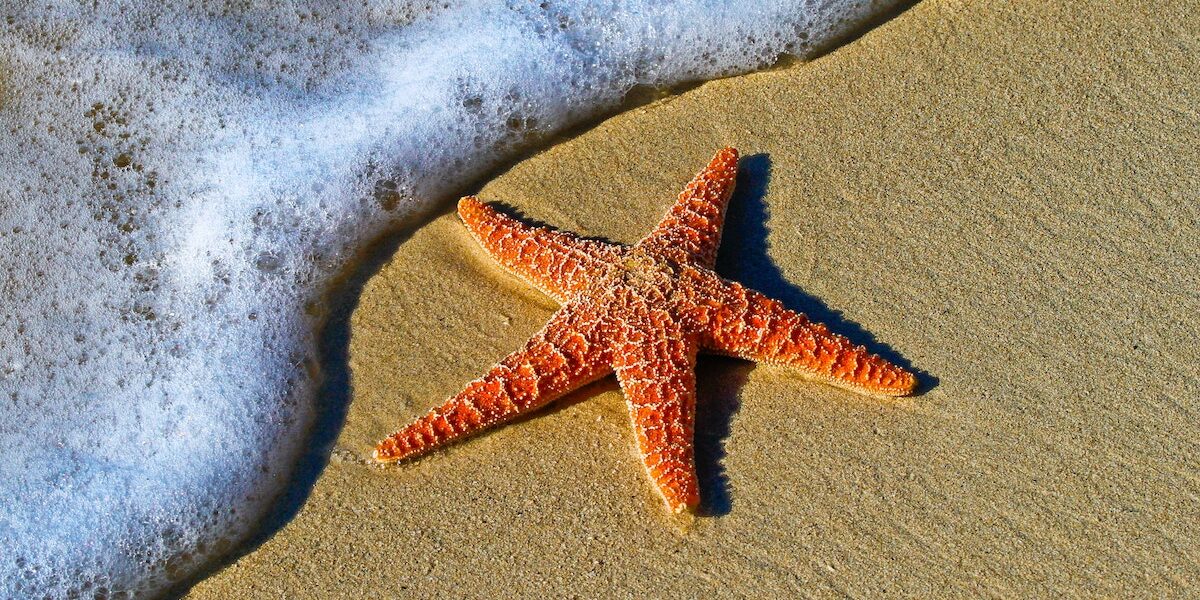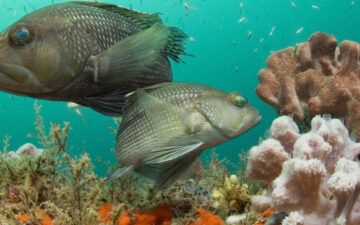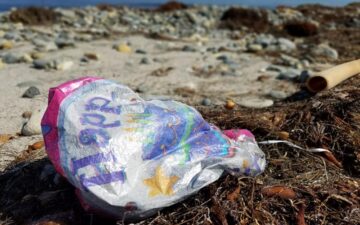By Catharine Cooper and Mark Spalding, President, The Ocean Foundation
A version of this blog originally appeared on National Geographic’s Ocean Views
It’s hard to imagine anyone who has not been changed by an experience of the sea. Whether it is to walk by her side, swim in her cooling waters, or float on her surface, the vast expanse of our ocean is transformative. We stand in awe of her majesty.
We are mesmerized by her undulating surfaces, the rhythm of her tides, and the pulse of crashing waves. The plethora of life within and without the sea provides us with sustenance. She modulates our temperatures, absorbs our carbon dioxide, provides us recreational activities, and defines our blue planet.
We gaze at her haunting, distant blue horizon and experience a sense of limitlessness that we now know is false.
Current knowledge reveals that our seas are in deep trouble – and they need our help. For far too long we have taken the ocean for granted, and expected magically that she would absorb, digest and correct all that we threw into her. Declining fish populations, decimation of coral reefs, dead zones, increasing acidification, oil spills, toxic die-off, a gyre of garbage the size of Texas – are all problems created by man, and it is man who must change to protect the waters that support life on our planet.
We’ve reached a tipping point – a place where if we do not change/correct our actions, we might cause the end of life in the sea, as we know it. Sylvia Earle calls this moment, “the sweet spot,” and says that what we do now, the choices we make, the actions we take, can turn the tide in a life-supporting direction, for the ocean and ourselves. We have begun to move slowly in the right direction. It’s up to us – we who cherish the seas – to take bolder steps to secure the health and future of the ocean.
Our dollars can be turned into bold actions. Ocean philanthropy is one of the choices we can make, and donations are vital to the continuation and expansion of ocean programs for three critical reasons:
- The problems and challenges facing the seas are greater than ever
- Government funds are declining- even disappearing for some critical ocean programs
- Research and program costs continue to spiral upward
Here are five important things you can do right now to help sustain the life of our seas:
1. Give, and Give Smart.
Write a check. Send a wire. Assign an interest-bearing asset. Gift appreciated stocks. Charge a donation to your credit card. Spread a gift out via monthly recurring charges. Remember a charity in your will or trust. Become a Corporate Sponsor. Become an Ocean Partner. Give a gift in honor of a friend’s birthday or your parents’ anniversary. Give in memory of an ocean lover. Sign up for your employer’s charitable gift matching program.
2. Follow your heart
Pick the most effective ocean conservation groups that connect with your heart. Are you a sea turtle person? In love with whales? Worried about coral reefs? Engagement is everything! Guidestar and Charity Navigator provide detailed analysis of revenue vs expenses for most large U.S. nonprofit companies. The Ocean Foundation can help you locate a project that best matches your interests, and you’ll reap the rewards as your donations fund ocean successes.
3. Get Involved
Every sea supportive organization can use your assistance, and there are hundreds of ways to have a hands-on experience. Help with a World Ocean Event (June 8th), participate in a beach cleanup (Surfrider Foundation or the Waterkeeper Alliance). Turn out for International Coastal Clean Up Day. Survey fish for REEF.
Educate yourself, your children, and friends on issues pertaining to the seas. Write letters to government officials. Volunteer for organizational activities. Pledge to reduce your own impact on the health of the seas. Become a spokesperson for the ocean, a personal sea ambassador.
Tell your family and friends that you gave for the ocean and why! Invite them to join you in supporting the causes you have found. Chat it up! Say nice things about your chosen charities on Twitter or Facebook, and other social media.
4. Give Needed Stuff
Non-profits need computers, recording equipment, boats, diving gear, etc. to do their work. Do you have things that you own, but don’t use? Do you have gift cards to stores that do not sell what you need? Many charities post a “wish list on their website.” Consult your charity to confirm the need before you ship. If your donation is something large, like a boat or an all-terrain vehicle, consider also giving the cash needed to insure it and maintain it for a year or more.
5. Help us find the “why?”
We need to understand why there has been a significant uptick in strandings – such as the pilot whales in Florida, or seals in the UK. Why are the Pacific sea stars are mysteriously dying and what is the cause of the west coast sardine population crash. Research takes man hours, data collection, and scientific interpretation – long before action plans can be developed and put into effect. These works require funding – and again, that’s where ocean philanthropy’s role is foundational to the sea’s success.
The Ocean Foundation (TOF) is a unique community foundation with a mission to support, strengthen, and promote those organizations dedicated to reversing the trend of destruction of ocean environments around the world.
- We simplify giving so donors can focus on their chosen passion for the coasts and ocean.
- We find, evaluate, and then support – or fiscally host – the most effective marine conservation organizations.
- We advance innovative, customized philanthropic solutions for individual, corporate and government donors.
A sampling of TOF Highlights for 2013 include:
Welcomed four new fiscally sponsored projects
- Deep Sea Mining Campaign
- Sea Turtle Bycatch
- Global Tuna Conservation Project
- Lagoon Time
Participated in the opening debate “Fundamental Challenges for Our Oceans Today and Implications for Humankind in General and for Coastal States in Particular.”
Began development of a Clinton Global Initiative commitment regarding international sustainable aquaculture.
Presented and participated in 22 conferences/meetings/roundtables that took place both nationally and internationally. Participated in the 10th International Seafood Summit in Hong Kong
Helped transition former fiscally sponsored projects Blue Legacy International and Ocean Doctor into independent non-profit organizations.
General Program Successes
- TOF’s Shark Advocate International worked to get the CITIES plenary to accept recommendations to list five species of highly traded sharks
- TOF’s Friends of Pro Esteros lobbied for and won to get the California government to protect Ensenada Wetland in Baja California, Mexico
- TOF’s Ocean Connectors project established a partnership with National School District to bring Ocean Connectors into all elementary schools in the next 5 years.
- TOF’s SEEtheWild Project launched its Billion Baby Turtles initiative that to date has helped protect roughly 90,000 hatchlings at turtle nesting beaches in Latin America.
More information on our 2013 programs and accomplishments can be found in our online TOF 2013 Annual Report.
Our slogan is “Tell Us What You Want To Do For The Ocean, We Will Take Care Of The Rest.”
To take care of the rest, we – and the entire ocean community – need your help. Your ocean philanthropy can turn the tide toward sustainable seas and a healthy planet. Give big, and give now.







